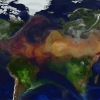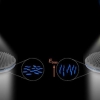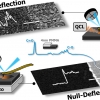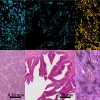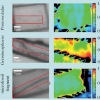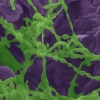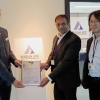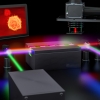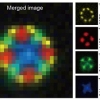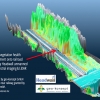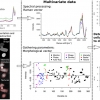News
Imaging News
A NASA grant will help us to better understand how plant pathogens that travel the globe with dust particles might put crops at risk using imaging spectroscopy.
Multispectral and thermal infrared cameras are being used on planes and drones to find mains water leaks.
Models based on spectral images from unmanned aerial vehicles and satellites can help farmers to monitor the health of individual macadamia trees.
Researchers have integrated a photo-patterned liquid crystal into a dielectric metasurface to achieve achromatic and chromatic focusing with a single metalens.
Researchers at the Beckman Institute for Advanced Science and Technology have developed a new method to improve the detection ability of nanoscale chemical imaging using atomic force microscopy.
A partnership to enable the generation of classification models using the Headwall MV.X and perClass Mira software on a PC.
Infrared microscopy can automatically detect the type of intestinal tumour within 30 minutes. These results are then used to make targeted therapy decisions.
The presence of kaolinite haloes surrounding ancient fossils is believed to have kept destructive bacteria at bay, stopping decay. The small molecular differences of the clay were analysed with the synchrotron infrared microbeam at Diamond Light Source.
A new type of imaging system for use in agriculture, designed to be far less expensive than existing technology, is being developed in a partnership between Scottish academics and industry.
Electron microscopy and Raman spectroscopy have shown the mechanism by which microorganisms are able to extract water from the rocks they colonise.
Using a smartphone camera and spectral super-resolution spectroscopy, anaemia and blood disorders can be assessed outside the lab.
Every year, the WITec Paper Award competition recognises three exceptional peer-reviewed publications that feature results acquired with a WITec microscope.The 2020 Paper Awards go to researchers from Japan, Poland and Austria.
Using gas cluster ion beam secondary ion mass spectrometry (GCIB-SIMS), researchers at Penn State have directly observed functional enzyme clusters (metabolons) involved in generating purines, the most abundant cellular metabolites.
Applications are invited for these prestigious awards administered by the Association of British Spectroscopists (ABS) Trust.
A team of researchers from the Fraunhofer Institute for Applied Optics and Precision Engineering IOF in Jena has developed a quantum imaging solution that can produce detailed insights into tissue samples using extreme spectral ranges and less light.
Using cryogenic, ultrahigh-vacuum TERS and fine-tuning the highly localised plasmon field at the sharp tip apex has reduced the spatial resolution to 1.5 Å
Metabolic diseases such as diabetes and obesity are ever more common globally. In addition to genetic disposition, lifestyle contributes strongly to their prevalence. Precise monitoring methods are needed in order to, for example, evaluate how a change in diet or exercise affects disease and its metabolic characteristics.
Headwall BVBA, Belgium and geo-konzept of Germany have announced the formation of a Centre for Hyperspectral Remote Sensing Europe (CHRSE).
Quantitative phase microscopy and Raman spectroscopy provide a label-free way to extract biomarkers based on cellular morphology and intracellular content.
Scientists at Münster University use dual-beam lasers to increase the resolution of MALDI MS imaging.

